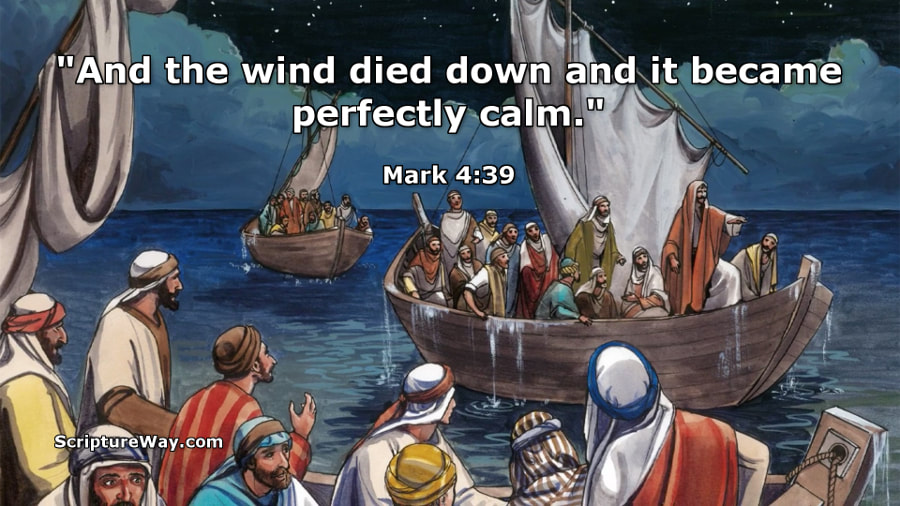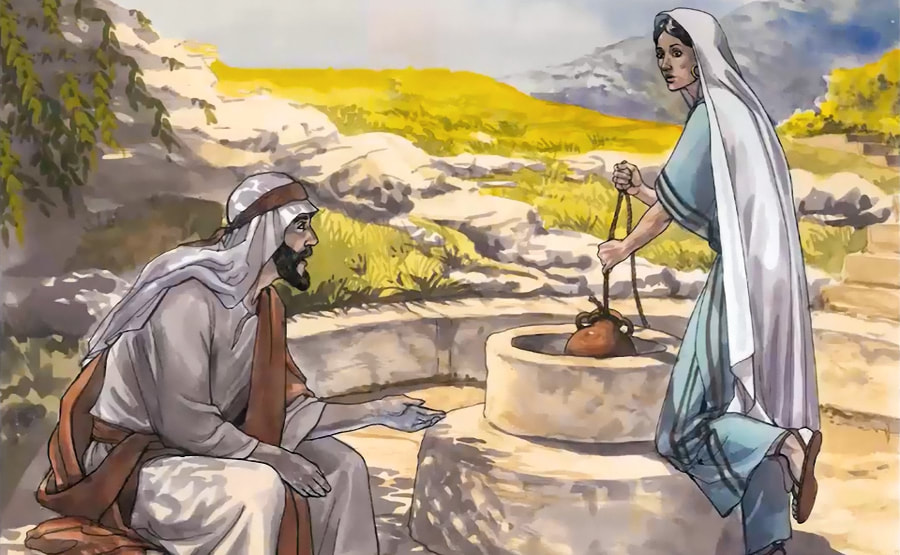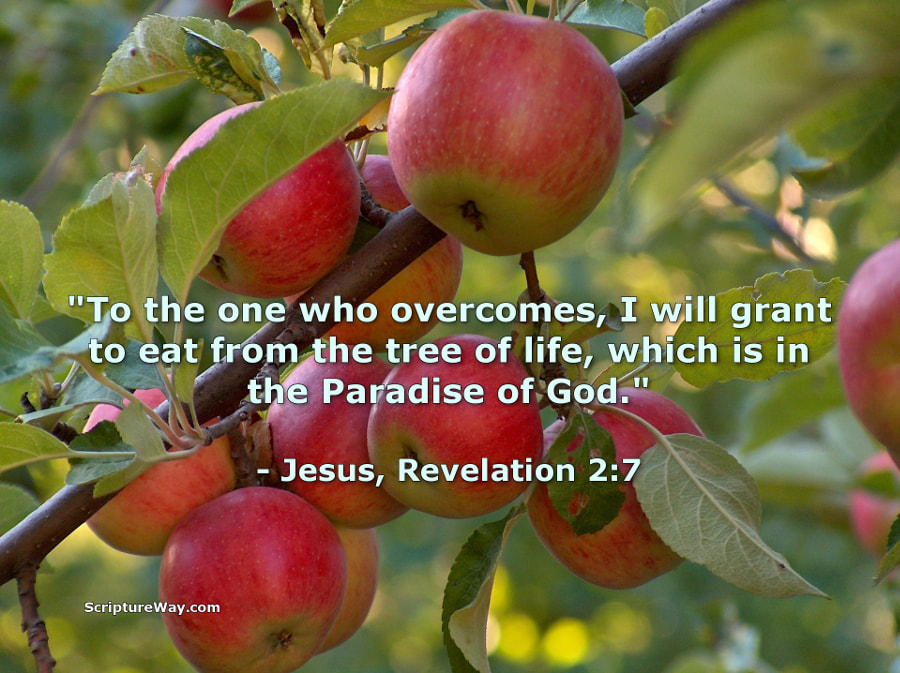Image Source: freebibleimages.org
"And Jesus came up and spoke to them, saying, 'All authority has been given to Me in heaven and on earth.'" (Matthew 28:18)
This lesson presents 10 facets of the authority of Jesus Christ as taught in the Gospels of Matthew, Mark, Luke, and John.
The scripture references below are from the New American Standard Bible 1995 on the Bible Gateway website unless indicated otherwise (Ref. 1).
Consider. Which aspects of Jesus' authority really amaze you?
Authority Defined
In the New Testament and in the examples below, the Greek word translated as "authority" is exousia [pronounced ex-oo-see'-ah]. Exousia means power to act, conferred or delegated power, ability, and weight (Ref. 2).
1. Jesus' Authority as a Teacher
"They were amazed at His teaching; for He was teaching them as one having authority, and not as the scribes" (Mark 1:22).
People were amazed [literally shocked or astonished] at the authority [ability and weight] that Jesus exhibited in his teaching (Matthew 7:28-29, Ref. 2, Ref. 3). Whereas the scribes quoted secondhand from other human sources such as rabbis ("Hillel says ..."), Jesus spoke from himself independently and absolutely as one sent of God (Ref. 4, Ref. 5). Jesus' formula was not "Ye have heard that it hath been said," but "I say unto you" (Ref. 6, Matthew 5:43-44 KJV). 2. Jesus' Authority over Unclean Spirits
"And Jesus rebuked him, saying, 'Be quiet, and come out of him!' Throwing him into convulsions, the unclean spirit cried out with a loud voice and came out of him. They were all amazed, so that they debated among themselves, saying, 'What is this? A new teaching with authority! He commands even the unclean spirits, and they obey Him'" (Mark 1:23-27).
Jesus demonstrated his authority [power to act] over unclean spirits by verbal word of command (man in synagogue - Mark 1:23-27, Gerasene demoniac - Luke 8:26-39, deaf mute boy with convulsions - Mark 9:14-29). 3. Jesus' Authority to Heal Diseases
"And a leper came to Jesus, beseeching Him and falling on his knees before Him, and saying, 'If You are willing, You can make me clean.' Moved with compassion, Jesus stretched out His hand and touched him, and said to him, 'I am willing; be cleansed.' Immediately the leprosy left him and he was cleansed" (Mark 1:40-42).
Jesus demonstrated his authority to heal diseases by touch and verbal command (Simon's mother-in-law - Mark 1:30-31, leper - Mark 1:40-45, paralytic - Mark 2:10-12, man with withered hand - Matthew 12:9-14, blind man - Mark 8:22-26). In the remarkable encounter with the centurion whose slave was sick and about to die, the centurion recognized Jesus' authority to heal the centurion's slave from a distance by just saying the word (Matthew 8:5-10, 13). 4. Jesus' Authority to Raise the Dead
"And He came up and touched the coffin; and the bearers came to a halt. And He said, 'Young man, I say to you, arise!' The dead man sat up and began to speak. And Jesus gave him back to his mother'" (Luke 7:14-15).
Jesus demonstrated his authority to raise the dead by spoken command. In addition to raising the widow of Nain's son (Luke 7:11-17), Jesus raised Jairus' daughter (Luke 8:40-42, 49-56), and Lazarus (John 11:1, 11:21-27, 38-45). These miracles of Jesus' authority proved who Jesus was (and still is). Martha said to Jesus, "Yes, Lord; I have believed that You are the Christ, the Son of God, even He who comes into the world" (John 11:27). 5. Jesus' Authority to Forgive Sins
"Being unable to get to Him because of the crowd, they removed the roof above Him; and when they had dug an opening, they let down the pallet on which the paralytic was lying. And Jesus seeing their faith said to the paralytic, 'Son, your sins are forgiven'" (Mark 2:4-5). Some of the scribes who were present reasoned in their hearts, "Why does this man speak that way? He is blaspheming; who can forgive sins but God alone?" (Mark 2:7, Exodus 34:6-7, Isaiah 43:25, Micah 7:18).
Jesus used his divine authority to heal the paralytic (with results the scribes could see) to prove his divine authority to forgive sins. Jesus said, "'But so that you may know that the Son of Man has authority on earth to forgive sins'—He said to the paralytic, 'I say to you, get up, pick up your pallet and go home'" (Mark 2:10-11). The forgiven and healed paralytic did rise, and took out his pallet in the sight of all (Mark 2:12). The people were amazed and glorified God (Mark 2:12). Such is the authority of Jesus! 6. Jesus' Authority over the Creation Jesus Calms the Storm - Mark 4:39 - Used by permission - Good News Productions International and College Press Publishing Jesus Calms the Storm - Mark 4:39 - Used by permission - Good News Productions International and College Press Publishing
"And He got up and rebuked the wind and said to the sea, 'Hush, be still.' And the wind died down and it became perfectly calm" (Mark 4:39).
Jesus -- the Creator (Genesis 1:1, John 1:1-3, Colossians 1:15-17) -- demonstrated his authority over the creation by commanding the sea to be still (Mark 4:35-41). This miracle powerfully showed Jesus' disciples who he was (and still is). The Old Testament teaches that God is the only one who can still the roaring sea (Psalm 65:5-7). Jesus' disciples remarked, "Who then is this, that even the wind and the sea obey Him?" (Mark 4:41). 7. Jesus' Authority to Execute Judgment
"For just as the Father has life in Himself, even so He gave to the Son also to have life in Himself; and He gave Him authority to execute judgment, because He is the Son of Man" (John 5:26-27).
God has given Jesus -- the Son of God (Luke 1:31-35), the Son of Man (Daniel 7:13-14), and the Messiah (John 4:25-26) -- authority to execute judgment. The Greek word for "judgment" in John 5:27 is krisis (pronounced kree'-sis). Krisis means a judicial decision with the results of either a positive verdict for (righteousness) or a negative verdict against (condemnation) (HELPS Word-studies - Ref. 7). The Gospel of John tells us that those who do not believe in Jesus are "judged already" (John 3:18, for context, read John 3:16-21). Those who do believe in Jesus do not need to worry about judgment [condemnation] because "He who hears My word, and believes Him who sent Me, has eternal life, and does not come into judgment, but has passed out of death into life" (John 5:24). 8. Jesus' Authority over Mankind to Give Eternal Life
"Jesus spoke these things; and raising His eyes to heaven, He said, 'Father, the hour has come; glorify Your Son, so that the Son may glorify You, just as You gave Him authority over all mankind, so that to all whom You have given Him, He may give eternal life" (John 17:1-2 NASB 2020).
Note the distinction Jesus makes in this prayer between "all mankind" and those "given him." Although Jesus has authority over all mankind, Jesus gives eternal life to those his heavenly Father has given him, that is, all who will believe in him (John 3:14-16, 1 John 5:13, Ref. 8). 9. Jesus Gives Authority to His Disciples
"And He called the twelve together, and gave them power and authority over all the demons and to heal diseases. And He sent them out to proclaim the kingdom of God and to perform healing" (Luke 9:1-2).
Twelve sent out: Jesus not only gave the twelve disciples the authority to act, but also gave them the power to act. The power and authority that Jesus gave his disciples over demons and to perform healing confirmed their preaching message. Luke 9:6 tells us, "Departing, they began going throughout the villages, preaching the gospel and healing everywhere."
Seventy sent out: Luke 10:1 tells us that Jesus appointed seventy others and sent them to every city and place where He was going to come. Jesus instructed the seventy to heal the sick and say to them, "The kingdom of God has come near to you" (Luke 10:9). The seventy returned with joy, saying, "Lord, even the demons are subject to us in Your name" (Luke 10:17). The authority of Jesus' disciples to heal the sick, to cast out demons, to preach the gospel, and to make disciples is not in the authority of their (our) own name but is in the authority of the name of Jesus.
Disciples after Pentecost: At Pentecost and after Pentecost, God poured out the Holy Spirit on Jesus' disciples and filled them (Acts 2:1-4, Acts 2:17, Acts 4:31, Acts 10:44-48). Jesus had told them in advance that the Holy Spirit would come upon them so they would be his witnesses "in Jerusalem, Judea, Samaria, and even the remotest part of the earth" (Acts 1:8). In the authority of Jesus' name, Jesus' spirit-filled disciples healed the sick, cast out demons, and raised the dead. These miracles resulted in opportunities for Jesus' disciples to testify about Jesus Christ with the results of many people believing in the Lord. Examples include:
10. All Authority Has Been Given to Jesus
After Jesus' resurrection, "The eleven disciples proceeded to Galilee, to the mountain which Jesus had designated" (Matthew 28:16). "Jesus came up and spoke to them, saying, 'All authority has been given to Me in heaven and on earth'" (Matthew 28:18).
God has exalted Jesus Christ and has given him supreme authority in heaven and earth. The Apostle Paul tells us about Jesus, "Being found in appearance as a man, He humbled Himself by becoming obedient to the point of death, even death on a cross. For this reason also, God highly exalted Him, and bestowed on Him the name which is above every name, so that at the name of Jesus every knee will bow, of those who are in heaven and on earth and under the earth, and that every tongue will confess that Jesus Christ is Lord, to the glory of God the Father" (Philippians 2:8-11). God has given Jesus all authority over all peoples and nations (Daniel 7:13-14, Philippians 2:10-11). Jesus governs and protects the church (Ephesians 1:19-23). Jesus bestows the Holy Spirit (John 14:16-17, Acts 1:8), and he employs the angels of God to render service for those who will inherit salvation (Hebrews 1:13-14, Ref. 10). In the supreme authority that God has given Jesus Christ, Jesus said to his disciples then, and he says to us -- his disciples today -- "Go therefore and make disciples of all the nations, baptizing them in the name of the Father and the Son and the Holy Spirit, teaching them to observe all that I commanded you; and lo, I am with you always, even to the end of the age" (Matthew 28:19-20).
Apply. In the authority that Jesus has given you as his disciple, how will you serve others in Jesus' name?
References
1. https://www.biblegateway.com/passage/?search=Matthew+28%3A18&version=NASB1995 2. https://biblehub.com/greek/1849.htm 3. https://biblehub.com/greek/1605.htm 4. https://biblehub.com/commentaries/gill/mark/1.htm Gills Exposition - Mark 1:22 5. https://en.wikipedia.org/wiki/Hillel_the_Elder 6. https://biblehub.com/commentaries/cambridge/mark/1.htm Cambridge Bible for Schools and Colleges - Mark 1:22 7. https://biblehub.com/greek/2920.htm 8. https://biblehub.com/commentaries/barnes/john/17.htm Barnes notes on John 17:2 9. https://www.merriam-webster.com/dictionary/divination 10. https://biblehub.com/commentaries/pulpit/matthew/28.htm Pulpit Commentary on Matthew 28:18
0 Comments
"Jesus answered her, 'If you knew the gift of God, and who it is that is saying to you, ‘Give me a drink,’ you would have asked him, and he would have given you living water.'" (John 4:10)
This lesson explains the meaning of living water in the Bible, and provides examples of living water -- physical and spiritual -- from the Old and New Testaments.
Consider. What does "living water" mean to you? How would you explain "living water" to someone else?
"Living water" in the Bible refers both to flowing, fresh, pure water that satisfies our thirst in the physical sense and to perpetual, God-given spiritual blessing and life-giving power that satisfies our thirst in the spiritual sense.
1. Living water is flowing and fresh
"Isaac’s servants dug in the valley and found there a well of flowing [living] water" (Genesis 26:19, brackets added, Ref. 1). Read Genesis 36:18-22 for context.
"Living water" in the physical sense is water that is flowing and fresh as from a running stream or a perennial spring. Its motion and freshness resembles life, in contrast with stagnant water or water that is turbid (muddy or sediment-filled) or salty. The Hebrew word for flowing in Genesis 26:19 is chay (pronounced khah'-ee). Chay is an adjective which means alive or living (Strong's Concordance - Ref. 1). When chay describes water, it means flowing and fresh (Brown-Driver-Briggs - Ref. 1). Also see Zechariah 14:8. In the Bible, living water in the physical sense implies freshness, movement, and life. 2. Living water is spiritual blessing and life-giving power
Living water in the spiritual sense is spiritual blessing and life-giving power. God is the source -- the fountain -- of living water for his people. Jesus, the Son of God, is the giver of living water. Unlike the idols, lusts, and material things the world seeks to satisfy its thirsts, the living water that Jesus gives us satisfies our thirsts perpetually and springs up in us to eternal life. The living water that Jesus gives us overflows in us and blesses others.
a. God is the source -- the fountain -- of living water
"For my people have committed two evils: they have forsaken me, the fountain of living waters, and hewed out cisterns for themselves, broken cisterns that can hold no water" (Jeremiah 2:13). Also read Jeremiah 17:13, and Psalm 36:9.
In Jeremiah 2:13, Jeremiah 17:13, and Psalm 36:9, the Hebrew word for fountain is maqor (pronounced maw-kore') and means figuratively a spring (Ref. 2). God, the fountain [or spring] of living water, provided the Israelites every blessing they needed. Yet, the Israelites deserted God, practiced idolatry, and sought after gods that would not profit them (Jeremiah 2:8-11). Today, God, the fountain of living water, provides us every blessing we need. That brings up the question -- Are you seeking God who can truly satisfy your thirst, or are you trusting in "broken cisterns that can hold no water" (Jeremiah 2:13)? b. Jesus Christ -- the Son of God -- is the giver of living water
"Jesus answered her, 'If you knew the gift of God, and who it is that is saying to you, ‘Give me a drink,’ you would have asked him, and he would have given you living water'" (John 4:10). Read John 4:1-15 for context.
Jesus Christ -- the Son of God, the Messiah -- is the giver of living water (John 4:10, John 4:14). However, in John 4:10, early in his conversation with the woman at the well, there were two impediments preventing the woman from receiving the living water that Jesus gives. First, she did not know [Greek word eidó means perceive] who it was who was speaking to her (Ref. 3). At first she thought Jesus was an ordinary Jew (John 4:9). Later in the conversation she did understand who Jesus was -- the Messiah, the Christ -- and she proclaimed Jesus to the people of her town (John 4:25-26, John 4:28-29) resulting in their coming to Christ (John 4:39-42). Second, when Jesus began the conversation with the woman at the well, she did not know [perceive] what the gift of living water really was (and still is). When Jesus first mentioned living water to her (John 4:10), she thought of living water only in the physical, flowing sense (John 4:11). Moments later in the conversation, Jesus helped her to think of living water in the spiritual sense. In John 4:13, Jesus said (referring to the physical well water), "Everyone who drinks of this water will thirst again." Jesus then explained the spiritual benefits of living water. "Whoever drinks of the water that I will give him will never be thirsty again. The water that I will give him will become in him a spring of water welling up to eternal life" (John 4:14). When Jesus described the spiritual meaning of living water -- perpetual, life-giving power that springs up to eternal life (John 4:14) -- the woman then expressed her desire to have that living water. She said, "Sir, give me this water, so that I will not be thirsty or have to come here to draw water" (John 4:15). So, note the two conditions from John 4:10-15 for receiving the life-giving living water that Jesus gives: 1) Perceive who Jesus really is (the Messiah, the Christ), and 2) Desire to have the living water that Jesus is willing to give. c. The living water that Jesus gives us satisfies our thirsts perpetually and springs up in us to eternal life
"Whoever drinks of the water that I will give him shall never be thirsty; but the water that I will give him will become in him a fountain of water springing up to eternal life" (John 4:14).
(1). The living water that Jesus gives us is eternal in its duration and satisfies our thirsts completely
Jesus said to the woman, "Whoever drinks of the water that I will give him shall never be thirsty" (John 4:14). Jesus recognized that the Samaritan woman was thirsty; however, she was seeking to satisfy her thirst in the ways of the world (John 4:16-18, 1 John 2:15-17). In contrast with the ways of the world which are temporary and cannot satisfy our spiritual thirst (broken cisterns that can hold no water), the living water that Jesus Christ gives us eternally satisfies our thirst.
(2). The living water that Jesus gives us becomes in us a fountain springing up to eternal life
Jesus said, "The water that I will give him will become in him a fountain of water springing up to eternal life" (John 4:14). The living water that Jesus gives us as believers -- spiritual blessing and life-giving power -- is a perpetually flowing fountain within us that is active, dynamic, and vigorous. The Greek word that John uses for springing is hallomai (pronounced hal'-lom-ahee) which means leaping, springing, gushing (Ref. 4). The living water that Jesus gives us provides us abundant life (John 10:10). The living water that Jesus gives us helps us to enjoy the quality of eternal life now with him while we are on earth and as we anticipate being in heaven with him.
d. The living water that Jesus gives us flows from us and blesses others
Jesus said, "He who believes in Me, as the Scripture said, 'From his innermost being will flow rivers of living water'" (John 7:38).
To discuss this verse, let's consider "three directions" -- to us, in us, and from us to others. To us -- God is the source, the fountain of living water (Jeremiah 2:13). That living water -- God's blessing and spiritual power -- flows from God to us (Isaiah 44:3). In us -- The living water that Jesus gives us is a life-giving fountain that springs up in us (John 4:14). The living water that Jesus gives us completely satisfies our thirsts and endures to eternal life. From us to others -- Jesus said that for those that believe in him, from our innermost being "will flow rivers of living water" (John 7:38). From God we shall receive an abundance of spiritual blessings not only to refresh us, but also so we can be instrumental in refreshing and comforting others (Ref. 5). As believers, we do not "end" at satisfying our own thirsts, but we become a fount, using the spiritual gifts God has given us, so others may derive refreshment (Ref. 6). As faithful stewards of God's grace, we are to use the gifts, spiritual blessings, and life-giving power that God has given us to bless others (1 Peter 4:10).
Apply. Know "the thirst of your soul, the readiness of the Giver, and the sweetness of the living water that Jesus offers. Fall at his feet and ask, and get the water of life" (Alexander MacLaren - Ref. 7, John 4:15).
Related Lessons
"Come to the Waters (Isaiah 55:1)" "What is Eternal Life?" (John 17:3) "Do Not Love the World" (1 John 2:15)
References
1. https://biblehub.com/hebrew/2416.htm 2. https://biblehub.com/hebrew/4726.htm 3. https://biblehub.com/greek/1492.htm 4. https://biblehub.com/greek/242.htm 5. https://biblehub.com/commentaries/benson/john/7.htm Commentary on John 7:38 6. https://biblehub.com/commentaries/cambridge/john/7.htm Commentary on John 7:38 7. https://biblehub.com/commentaries/maclaren/john/4.htm Commentary on John 4:10
This lesson teaches the important role of spiritual hearing in the steps leading to faith and salvation.
Consider. Recall the person or persons who shared with you the word of Christ and helped you to have faith in Christ.
"Faith Comes from Hearing"The type of hearing that results in faith
The Apostle Paul begins Romans 10:17 with the phrase, "So faith comes from hearing." What, then, is the type of hearing that results in faith?
In Romans 10:17 Paul refers to inner spiritual hearing -- hearing that goes with receiving faith from God (HELPS Word-studies - Ref. 1). (Faith itself is a gift from God - Ephesians 2:8, Ref. 2). Inner spiritual hearing is not just the physical sense of hearing or the organ of the ear (Mark 7:35, Acts 17:20). Inner spiritual hearing is hearing that perceives, understands, accepts, and acts upon the message that the preacher (or teacher, parent, or friend) is telling us about Christ (Ref. 1, Matthew 13:14-15, 1 Thessalonians 2:13, Matthew 7:24). "And Hearing through the Word of Christ"
Paul concludes Romans 10:17 with the phrase, "and hearing through the word of Christ." What, then, is the "word of Christ" that results in spiritual hearing and faith?
In Romans 10:17 Paul uses the Greek word rhéma (pronounced hray'-mah) for "word" in "word of Christ" (Ref. 3). Rhéma means spoken words, sayings, commands, and promises (Ref. 3).
The "word of Christ" that results in our spiritual hearing and faith is the rhéma of Christ -- the spoken words, sayings, commands, and promises of Christ. For example, Jesus spoke these words, "For God so loved the world, that he gave his only Son, that whoever believes in him should not perish but have eternal life (John 3:16). Jesus also commanded his disciples, "Go into all the world and proclaim the gospel to the whole creation" (Mark 16:15).
Spiritual Hearing and Faith Result in Salvation and Eternal Life
When we spiritually hear the words of Christ -- the sayings, commands, and promises of Christ -- and believe them, God "continuously births faith" in us so we "can know what He prefers" (Ref. 2). Faith includes belief in Christ (having confidence in and trusting in Christ), and adds action. Jesus said, "Everyone who hears these words of Mine, and acts on them, will be like a wise man who built his house on the rock" (Matthew 7:24, italics added).
Faith is a gift of God, and results in our salvation. In Ephesians 2:8-9, Paul says, "For by grace you have been saved through faith. And this is not your own doing; it is the gift of God, not a result of works, so that no one may boast." When we spiritually hear the words of Jesus and believe in him, God gives us eternal life. Jesus said, "Truly, truly, I say to you, whoever hears my word and believes him who sent me has eternal life. He does not come into judgment, but has passed from death to life" (John 5:24).
Apply. Tune your ears to the words of Jesus. Spiritually hear, believe, and act upon the words of Jesus. Share the words of Jesus with others for their benefit -- faith in Christ, salvation, and eternal life.
Related Lessons
"What Does 'To Be Saved' Mean in the New Testament?" (Acts 16:31) "What Does 'To Be Saved' Mean in the Old Testament?" (Psalm 18:3) "What is Eternal Life?" (John 17:3)
Photo by onur mumcu from FreeImages
"Out of the ground the Lord God caused every tree to grow that is pleasing to the sight and good for food; the tree of life was also in the midst of the garden, and the tree of the knowledge of good and evil." (Genesis 2:9)
"The one who has an ear, let him hear what the Spirit says to the churches. To the one who overcomes, I will grant to eat from the tree of life, which is in the Paradise of God." (Revelation 2:7)
This lesson explains the original purpose of the tree of life, where the tree of life is now, that we overcome the world through faith in Christ, and that Jesus will grant to eat from the tree of life.
Consider. What was the original purpose of the tree of life in the garden of Eden? Why did God later prevent Adam from eating of the tree of life?
1. The Original Purpose of the Tree of Life
The original purpose of the tree of life was to preserve life. The tree of life was a special tree in the garden of Eden that God provided for the purpose of preserving life. Genesis 3:22 tells us if Adam had stretched out his hand and taken from the tree of life and eaten its fruit that he would have lived forever.
However, Adam lost access to the life-giving tree of life. Why? Adam sinned against God by disobeying God's command not to eat from the other special tree in the garden, the tree of the knowledge of good and evil (Genesis 2:9, Genesis 2:16-17, Genesis 3:6-7). After Adam had sinned, God drove him out of the garden of Eden. God stationed cherubim [angelic beings, Ref. 1] to guard the way to the tree of life (Genesis 3:24). God is merciful in that he prevented Adam (and prevents us as Adam's descendants) from living forever in a state of disobedience and sin. 2. Where is the Tree of Life Now?
The tree of life now is in the Paradise of God (Revelation 2:7). Paradise is where believers will be with Jesus after death. This is the same Paradise that Jesus spoke about to the penitent thief on the cross. "Truly I say to you, today you will be with Me in Paradise" (Luke 23:43; "Paradise, Jesus, and the Penitent Thief" -- Ref. 2).
In the future heavenly holy city, new Jerusalem (Revelation 21:1-2, Revelation 21:10), the tree of life will be on both sides of the river of the water of life (Revelation 22:1-2, Ezekiel 47:12). 3. We Overcome the World through Faith in Christ
In Revelation 2:7, Jesus said, "The one who has an ear, let him hear what the Spirit says to the churches. To the one who overcomes, I will grant to eat from the tree of life, which is in the Paradise of God."
Jesus promises he will grant to eat from the tree of life to the one who overcomes. To overcome means to conquer and to come off victorious (HELPS Word-studies, Ref. 3). We overcome the world through faith in Jesus, faith in the One who has already overcome the world. Jesus said, "These things I have spoken to you so that in Me you may have peace. In the world you have tribulation, but take courage; I have overcome the world" (John 16:33). The apostle John confirms that we overcome by faith in God's Son, Jesus Christ. "For whoever has been born of God overcomes the world; and this is the victory that has overcome the world: our faith. Who is the one who overcomes the world, but the one who believes that Jesus is the Son of God?" (1 John 5:4-5). Faith in Christ means believing in, trusting in, and having confidence in Christ (Ref. 4). 4. Eat from the Tree of Life
To the one who overcomes through faith in Christ, Jesus promises to grant (give, Ref. 5) to eat from the tree of life (Revelation 2:7). To eat from the tree of life is a gracious gift from God. Compare Revelation 2:7 with Romans 6:23, "For the wages of sin is death, but the gracious gift of God is eternal life in Christ Jesus our Lord."
Adam, through disobedience to God, lost access to the tree of life. As Adam's descendants, we overcome the world through faith in Jesus, and he will grant us to eat from the tree of life.
Apply. Put your faith in God's Son, Jesus Christ. Believe in, trust in, and have confidence in him. Overcome the world through your faith in Christ, and he will grant you to eat from the tree of life.
Related Lessons
"What is Eternal Life?"(John 17:3) "Paradise, Jesus, and the Penitent Thief"(Luke 23:43) "Biblical Definition of 'The World'" (John 1:10)
References
1. https://biblehub.com/hebrew/3742.htm - Strong's Exhaustive Concordance 2. https://www.scriptureway.com/home/paradise-jesus-and-the-penitent-thief 3. https://biblehub.com/greek/3528.htm 4. https://biblehub.com/greek/4102.htm 5. https://biblehub.com/greek/1325.htm
"But God, being rich in mercy, because of the great love with which he loved us, even when we were dead in our trespasses, made us alive together with Christ—by grace you have been saved." (Ephesians 2:4-5)
God has made believers in Christ alive together with Christ. We identify with the resurrection of Christ, and God gives us a new quality of life -- eternal life.
Consider. If you are a believer in Christ, how would you describe to an inquisitive unbeliever or a new believer what it means to be "made alive together with Christ"?
1. Who is Paul writing to?
Paul begins his letter, "Paul, an apostle of Christ Jesus by the will of God, to the saints who are in Ephesus, and are faithful in Christ Jesus:" (Ephesians 1:1). The Greek word for saints is hagios (hag'-ee-os) which means different or holy. Christians are different from the world because we are like the Lord (Ref. 1). Clearly, Paul is writing to believers in Jesus Christ.
2. What was the former spiritual condition of the Ephesian believers before God made them alive together with Christ?
Paul writes, "And you were dead in the trespasses and sins in which you once walked, following the course of this world ..." (Ephesians 2:1-2). In the same way, without Christ, we were dead in our trespasses and sins. We inherited our spiritual "deadness" from Adam (Genesis 2:16-17, Genesis 3:6). Romans 5:12 says, "When Adam sinned, sin entered the world. Adam’s sin brought death, so death spread to everyone, for everyone sinned" (Romans 5:12 NLT).
Trespasses are a lapse or deviation from the truth, a slip-up, or an error that can be unintentional or willful (Ref. 2). Sins are thoughts, words, or deeds where we miss the mark or target (Ref. 3). 3. Even when we were dead in our trespasses and sins, before we were in Christ, God loved us.
God's divine attributes of mercy and love moved God to plan for and provide for our salvation (Ephesians 1:3-5, Ephesians 2:4-5, Colossians 2:13-14). Romans 5:8 tells us, "But God shows his love for us in that while we were still sinners, Christ died for us." Jesus said about himself, "For God so loved the world, that he gave his only Son, that whoever believes in him should not perish but have eternal life. For God did not send his Son into the world to condemn the world, but in order that the world might be saved through him" (John 3:16-17).
4. Together with Christ, God has made us alive.
Ephesians 2:5 tells us (believers) that God has made us alive together with Christ. In the Greek, the verb does not just say "made alive." It says, "made alive together with" (Ref. 4). Strong's Exhaustive Concordance defines this verb, suzóopoieó (sood-zo-op-oy-eh'-o), as "to reanimate conjointly with, (figuratively) -- quicken together with." As believers in Christ, we identify with and are co-joined with Christ in his resurrection. Paul writes, "If you confess with your mouth that Jesus is Lord and believe in your heart that God raised him from the dead, you will be saved" (Romans 10:9).
5. When God makes us alive together with Christ, God gives us a new quality of life -- eternal life.
When we believe in Jesus Christ and in his resurrection, God makes us alive together with Christ. God gives us a new quality of life -- eternal life (Romans 6:23). Eternal life begins for the believer when they put their faith and trust in Christ, and continues after their physical death (John 11:25-26, Ref. 6).
Being made alive in Christ results in a new quality of life. The Greek word for eternal in eternal life is aiónios, which means perpetual, unending, age-long (Strong's Concordance, Ref. 5, Ref. 6). Aiónios includes the character of that which lasts for an age, as contrasted with that which is brief and fleeting (Ref. 5, Ref. 6). "Aiónios does not focus on the future per se, but rather on the quality of the age it relates to. People who are alive spiritually in Christ live in eternal life right now, experiencing this quality of God's life now as a present possession" (Helps Word-studies, Ref. 5, Ref. 6).
Apply. If you already are a believer in Jesus Christ, praise God that God has made you spiritually alive together with Christ. Thank God for the quality of new life that he has given you in Christ. If you are not yet a believer in Jesus Christ, put your faith and trust in him today. He will forgive your trespasses and sins. He will make you spiritually alive together with himself, and he will give you a new quality of life -- eternal life.
Related Lessons
"What is Eternal Life?" (John 17:3) "Jesus is the Resurrection and the Life (Job's Question, Jesus' Answer)" (Job 14:14, John 11:25-26) "Jesus Christ is the Life - John 14:6" "Jesus is the Way to Heaven" (John 14:6)
References
1. https://biblehub.com/greek/40.htm 2. https://biblehub.com/greek/3900.htm 3. https://biblehub.com/greek/266.htm 4. https://biblehub.com/greek/4806.htm 5. https://biblehub.com/greek/166.htm 6. http://www.scriptureway.com/home/what-is-eternal-life
Image: GoodSalt.com - used under license
"And he was saying, 'Jesus, remember me when You come into Your kingdom!' And He said to him, 'Truly I say to you, today you will be with Me in Paradise.'" (Luke 23:42-43)
Consider. For the person who puts their faith in Jesus, upon the death of their body, their soul goes immediately to be with Jesus in Paradise.
Two thieves were crucified with Jesus that day - one on the right and the other on the left (Luke 23:33). Both thieves were next to the One who could save them. Yet, one thief hurled abuse (literally, blasphemed) at Jesus (Luke 23:39, Ref. 1). The other, penitent thief recognized that he himself was guilty yet Jesus was innocent. The penitent thief said, "Jesus, remember me when You come into Your kingdom!" (Luke 23:40-42). To this thief, the penitent thief, Jesus said, "Truly I say to you, today you will be with Me in Paradise" (Luke 23:43).
Jesus' promise to the penitent thief has brought hope to millions of believers over the centuries since Jesus' death and resurrection. Jesus' promise to the penitent thief brings believers hope today as we consider the destination of our souls upon our death and the destination of the souls of our loved ones.
In the next two sections, I would like to focus on two important points, or "take aways" from Jesus' promise to the penitent thief.
Paradise is Where Believers Will Be with Jesus after Death
Jesus could have told the penitent thief, "Today you will be in Paradise." But Jesus did not say that. Jesus said, "Today you will be with Me in Paradise" (Luke 23:43, underline added).
Paradise in Greek is paradeisos (par-ad'-i-sos), which is "an ancient Persian word meaning 'enclosure, garden, park'" (Ref. 2). Paradise is mentioned in the New Testament only three times - in Luke 23:43, 2 Corinthians 12:4, and Revelation 2:7. The Apostle Paul expressed his desire (his passionate longing) to be with Jesus after his death when he wrote, "But if I am to live on in the flesh, this will mean fruitful labor for me; and I do not know which to choose. But I am hard-pressed from both directions, having the desire to depart and be with Christ, for that is very much better" (Philippians 1:22-23, Ref. 3). Likewise, the early Christians were encouraged, that when they were absent from their body, they would be at home with the Lord (2 Corinthians 5:8, Ref. 4). Note that Jesus' promise to the penitent thief, "Today you will be with Me in Paradise," did not apply to the unrepentant thief who verbally abused Jesus and did not believe in him. Scripture teaches that the souls of the unrighteous go to the place of torment Jesus described in Luke 16:22-26 . There they await judgment and the second death (Revelation 20:11-15). It is far better to believe in Jesus during our earthly lifetime and to have his assurance that upon the death of our body our soul will be in Paradise with him. The Souls of Believers Immediately Enter Paradise to be with Jesus after Death
Jesus told the penitent thief, "Truly I say to you, today you will be with Me in Paradise" (Luke 23:43, underline added). Not tomorrow. Not some time in the future. Today. Jesus spoke to the penitent thief in language that he would understand. Even though their dead bodies would be on the cross or in the grave (Luke 23:50-53), the souls of the Savior and the penitent thief would be alive and in Paradise together that day (Ref. 5).
Another biblical example illustrates a believer's expectation of going immediately to be Jesus upon his death. At the time of his death from stoning, Stephen the martyr said, "Lord Jesus, receive my spirit!" Then he died (Acts 7:57-60).
Apply. Let the words of Jesus to the penitent thief comfort you as you consider the destination of your soul upon your death. "Truly I say to you, today you will be with Me in Paradise" (Luke 23:43).
Put your faith and trust in Jesus who is the Messiah, the Christ, the Son of God. You will receive God's gracious gift of eternal life (Romans 6:23), and upon the death of your body, your soul will go to Paradise to be with Jesus.
Related Lesson
"What is Eternal Life?" (John 17:3) "What is the Tree of Life in the Bible?" (Genesis 2:9, Revelation 2:7)
"Jesus said to him, 'I am the way, and the truth, and the life; no one comes to the Father but through Me.'" (John 14:6)
Jesus said, "I am the way, and the truth, and the life; no one comes to the Father but through Me" (John 14:6). This lesson explains the "I am the life" portion of this verse. I encourage you to read first the two predecessor lessons which explain the "I am the way" and "I am the truth" portions of this verse. Here are the links:
"Jesus is the Way to Heaven" (Ref. 1) "Jesus is the Truth" (Ref. 2) The About the Way page also teaches about the Way of God in the Old Testament and the Way in the New Testament.
Consider. What does it mean to you that Jesus Christ said "I am the life"?
Jesus is the Creator and Source of Life
Jesus Christ is the source or fountain of all life. Scripture tells us "For by Him all things were created" and "All things have been created through Him and for Him" (Colossians 1:16). John writes, "All things came into being through Him, and apart from Him nothing came into being that has come into being" (John 1:3).
The Greek word for life is zóé, which means both physical (present) and spiritual (particularly future) existence (Ref. 3). Life always comes from and is sustained by God. "Life" here has no limitation, and includes life of the body, the life of the soul, the life of the spirit, life in the present, and life in the future (Ref. 4). Life is through Christ Rather than the Law
Jesus' Jewish listeners were familiar with the law given through Moses. Yes. God gave the law (Exodus 20:1-17, Exodus 24:12). Yes. God instructed the Israelites to obey the law (Deuteronomy 30:15-18). However, the law itself did not impart life. Only Jesus can impart life. I suggest that this point is central to what Jesus meant when he said "I am the life."
The Apostle Paul emphasizes faith in Christ versus the inability of the law to impart life. "If righteousness could be gained through the law, Christ died for nothing!" (Galatians 2:21). "For if a law had been given which was able to impart life, then righteousness would indeed have been based on law" (Galatians 3:21). "The law was our guardian until Christ came, in order that we might be justified by faith" (Galatians 3:24, italics added). Jesus is the Key to Blessed Life
Jesus spoke about the sheep under his care, "The thief comes only to steal and kill and destroy; I came that they [believers] may have life, and have it abundantly" (John 10:10, brackets added). The Greek word for abundantly in this verse is perissos, which means all-around and going beyond the expected limit (more than enough) (Ref. 5). As believers in Christ, Jesus cares for us and meets our needs. David, the Psalmist, captured this truth when he wrote, "The Lord is my shepherd, I shall not want. He makes me lie down in green pastures; He leads me beside quiet waters. He restores my soul; He guides me in the paths of righteousness For His name’s sake" (Psalm 23:1-3).
Jesus is the Giver of Eternal Life
Jesus said, "My sheep hear My voice, and I know them, and they follow Me; and I give eternal life to them, and they will never perish; and no one will snatch them out of My hand" (John 10:27-28, italics added).
The Greek word for eternal in eternal life is aiónios, which means unending, and age-long (Strong's Concordance - Ref. 6). Aiónios includes the character of that which lasts for an age, as contrasted with that which is brief and fleeting (Ref. 6). "Aiónios does not focus on the future per se, but rather on the quality of the age it relates to. Thus, believers live in eternal life right now, experiencing this quality of God's life now as a present possession" (Helps Word-studies - Ref. 6, Ref. 7).
Jesus Christ is the life. Jesus imparts life that the law cannot impart. Jesus is the key to a blessed life. To those who believe in him, Jesus gives eternal life - the quality of life which begins now and continues into eternity after our physical death. Thanks be to God for Jesus who is our life!
Apply. Take time now to thank God for the life that he gives you through his Son, Jesus Christ.
References
1. http://www.scriptureway.com/home/jesus-is-the-way-to-heaven 2. http://www.scriptureway.com/home/jesus-is-the-truth 3. https://biblehub.com/greek/2222.htm 4. https://biblehub.com/commentaries/ellicott/john/1.htm (Ellicott's Commentary on John 1:4) 5. https://biblehub.com/greek/4053.htm 6. https://biblehub.com/greek/166.htm 7. http://www.scriptureway.com/home/what-is-eternal-life |
Daily Bible Verse(Click the link above) AuthorMr. Whitney V. Myers. Christian. For more information, please visit the Author Page. Posting ScheduleI plan to provide new postings about once a month. Planned Topics(subject to change) Recent Posts(most recent three months) Popular Posts(top 10) Categories
All
Archives
July 2024
|
|
Copyright 2018-2024 Whitney V. Myers |
Listed in Feedspot's Top 100 Bible Study Blogs and Websites |







 RSS Feed
RSS Feed
